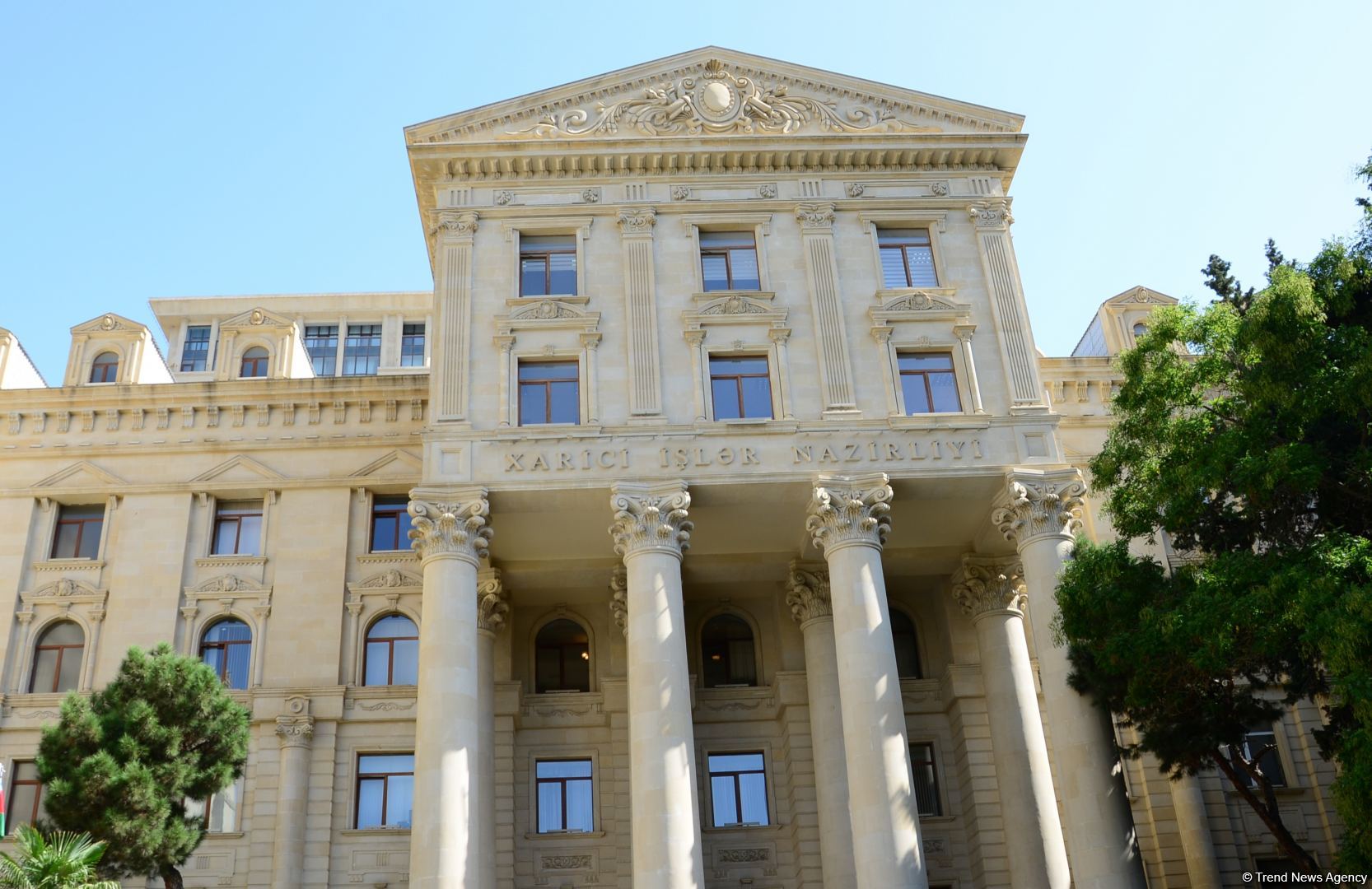BAKU, Azerbaijan, February 25. Today, it has been 32 years since the Khojaly genocide committed against Azerbaijani civilians during Armenia’s military aggression and occupation of the territories of Azerbaijan, the Azerbaijani Foreign Ministry said, Trend reports.
"Armenia’s policy of ethnic cleansing and genocide against Azerbaijanis was carried out along with crimes against humanity in settlements, including Baganis Ayrim, Jamilli, Karkijahan, Meshali, Malibeyli, Gushchular, Garadagli, etc. throughout the occupation of the territories of Azerbaijan. One of the worst atrocities of this kind was committed against Khojaly residents.
On the night of 25-26 February 1992, Khojaly city, which was sieged and whose ground traffic, as well as energy supply was cut off since October 1991 and January 1992 respectively, was occupied by Armenia’s armed forces with the assistance of the former USSR’s 366th Motorized Rifle Regiment following massive artillery shelling.
As a result of the occupation, 613 people, including 63 children, 106 women, 70 elderly citizens were brutally murdered, 8 families were completely wiped out, 130 children lost one of their parents, and 25 children lost both of their parents. The fate of 150 people, including 68 women and 26 children out of 1275 people, who were taken prisoner and hostage as well as cruelly tortured is still unknown.
Use of heavy weaponry without any military necessity against the city of Khojaly where peaceful Azerbaijanis were living, investigative materials on atrocities committed against the civilians, eyewitness testimonials, as well as the confession of Armenia’s then Defense Minister and ex-President, Serzh Sargsyan that “Before Khojaly, the Azerbaijanis thought that ... the Armenians were people who could not raise their hand against the civilian population. We were able to break that [stereotype]” lives no room for doubt that the massacre committed was not an accident, but a deliberate crime of genocide planned by Armenia and carried out by its subordinate forces.
As other crimes against humanity perpetrated by Armenia against Azerbaijanis, Khojaly genocide is also a gross violation of international humanitarian law, human rights law, as well as the Convention on the Prevention and Punishment of the Crime of Genocide, Convention against Torture and Other Cruel, Inhuman or Degrading Treatment or Punishment, International Convention on the Elimination of All Forms of Racial Discrimination.
Due to the failure to end the impunity of Armenia for crimes against humanity, this country continued its existing practice and committed war crimes against the population living in regions such as Ganja, Barda, Terter which are located at a considerable distance from military operations during the 44-day Patriotic War. This once again demonstrates the dire consequences of failing to bring into justice those responsible for crimes against humanity, such as genocide which fall under the scope of universal jurisdiction to justice.
From this perspective, world community’s support for measures taken at the national and international level to end the impunity of criminals, as well as collaboration in this field are critical.
This year for the first time, on the 32nd anniversary of the Khojaly genocide, our tricolor flag is flying over all the territories of Azerbaijan, including the city of Khojaly, which is a mental blowout and an incurable wound for every Azerbaijani.
Liberation of Khojaly embodies our strength and solidarity, thus it is a bond of loyalty to the victims of the Khojaly genocide.
At the same time, Azerbaijan believes that continuing measures taken at the national level and within the framework of current international law will serve to end impunity and bring those responsible for serious crimes committed during Armenia’s aggression against Azerbaijan to justice.
On this 32nd anniversary of the tragedy, we remember with deepest respect and honor the memories of the innocent victims of Armenia’s ethnic hatred and genocidal crimes, including the Khojaly genocide.
Rest in Peace!," the statement said.







